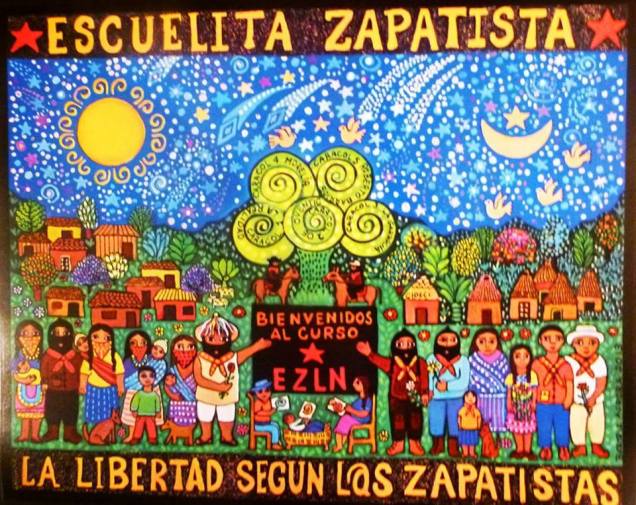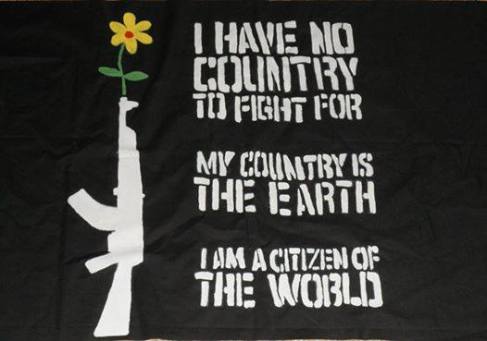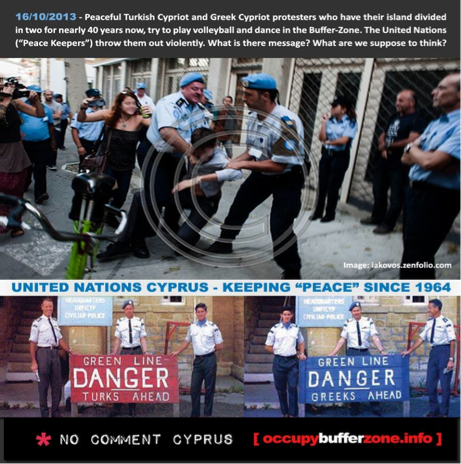The frequency of the recent suicides, or what seem as suicides, in the prisons of Cyprus, as well as the fact that almost all the people, who were found dead, or attempted to commit suicide are migrants, are definitely not random. The combination of the two facts is not random either.
If these are indeed suicides/suicide attempts within the context of the agency of the people committing them, that is prisoners, then we are talking about acts of protest against the conditions in the prison and of resistance against the power structures within the prison. They are about the use of the right to self-determination of one’s body; they are about the choice of death as an act of resistance against the current structures of prisons. The measures announced by the director of the prison and the ministry of justice are only efforts to fully restrict the right of prisoners to self-determination, and to the choice between life and death.
The fact that institutions like prisons are called “correctional institutions” is not random. “Correctional” because they aim to “correct” the people, who are incarcerated there. To “correct” is to impose to someone “the “correct way to be,” which is a condition of “reason” and “normality.” The “correct way to be” is “sanity.” It is not accidental that besides prisons and detention centres, mental health hospitals are also enlisted as correctional institutions.
A characteristic the correctional institutions share is (obligatory) confinement. Persons under correction are usually not allowed to choose either the correctional procedure, or their institutionalisation. These are imposed on them, without them giving their consent, or any possibility to make a choice, restricting in this way their freedom, their agency, and their self-determination. It is a judge or a judiciary, a doctor or a board of doctors that get to decide on and impose to someone confinement in correctional institutions, either a prison, or a mental health hospital. The infliction of these restrictions is under the pretext that this is for the “common good,” or even for the person’s “own good.” In the case of Cyprus, such decisions can also be administrative, since detention of migrants for “illegal stay” are usually based on detention and deportation orders issued by the migration officer.
An essential element of the correctional procedure is the isolation of the persons, who are under correction, from society, cutting them off society, and eventually marginalising them. Persons under correction are considered to be flagitious for the rest of the society and their correction is for the purposes of their “purgation.” In the same manner correction in the Middle Ages was imposed on persons that were judged as “sinners” for reasons of “purgation.”
Correction constitutes an exemplary punishment to ensure that the rest of the people in a society will also conform. By confining the people considered as “socially malfunctioning and dangerous” in a correctional institution, not only the punishment of those people is achieved, but it also sets an example for the rest of the people within the society. Thus, through the threat and fear of imprisonment and of isolation from the rest of the society, the compliance of the society members with the set legal and social framework and their subjection under its institutions are achieved. “Malfunctioning and dangerous” are considered to be the persons that do not fit in the legal and social framework, do not comply with the current social covenant, and do not obey the institutions.
As a consequence, even the persons that have never harmed anybody, but do not fit or do not accept to fit in the existing “boxes” of normativity are also compelled to correction. Historically, and also in modern times, women claiming visibility/agency/autonomy, gay persons, trans persons, persons with “infectious diseases” (tuberculosis, HIV, etc.), people with “mental problems,” migrants, and other groups of people outside the normative framework were and continue to be penalised for being what they are and forced to correction. Not because they harmed or because they could harm other people, but because they are considered to be a threat for the current social system and the current order of things. Therefore, correction was and still is a means to impose power and to restrict desire and autonomy. It is not a coincidence that at times of suppression of uprisings, prisons and mental hospitals become full with people. And the same happens during war periods.
It should not therefore come as a surprise that prisons, as correctional institutions, a tool of exercising power, are proven to be places of torture for the prisoners, and of corruption for those imposing, exercising, and protecting power. The surprise of the Cypriot society with the recent revelations
regarding the events in the central prisons is nothing but hypocrisy. We all know that prisons do not offer any improvements, but rather exist in order to impose authority, by punishing, exemplifying, isolating. Many choose to ignore this and not pay attention, but it is not strange that the lives of the persons, who are in prison become unbearable.
Particularly unbearable become the lives of those confined in correctional institutions and who diverge from normativity in more than one ways. So, women, migrants, homosexual and trans people, people with disabilities, people with mental care/psychiatric past, and any other person, who diverges from the social norms, experience their incarceration in prisons in a particularly violent way. The normativity imposed by society, continuous to be imposed within correctional institutions. It is no coincidence that those who committed or attempted to commit suicide in the central prisons are migrants.
On the contrary, people who are imprisoned, even for serious crimes (murders, rapes), but are adapted to normal stereotypes receive more advantageous treatment during their imprisonment. They have a good relationship with authority and those who impose it, and they can even undertake the role of punisher for their account, since they also want to make sure that they have good reciprocal relationships. As we have been informed, one of those who attempted suicide in the central prisons was repeatedly raped from other inmates with the complicity of the guards. We are also informed that punishment for those imprisoned is often their transfer to the cells of long-term convicts, who have good relationships with the guards, and who could abuse them. The shock that this information has (assumedly) caused is also hypocritical.
“Solutions” being forced by the state with the excuse to control an “unstable” situation are also hypocritical. In reality, they take away any remaining self-determination and agency the prisoners have over their own bodies and lives, in order to completely suppress them. Measures that have been announced in the last few days include things like: “the removal from the prisoners’ cells of all dangerous objects capable of being used for suicides; installation of special equipment within the cells to eliminate all the possibilities for the prisoners to find easy ways to commit suicide; instalment of soft mattresses around the perimeter of the cells to eliminate the possibility of the people wanting to commit suicide to hit their head on the wall, in order to cause their death; to create special places within the prisons to host people with psychological problems; the installation of anti-vandalism equipment;” and the reinforcement of the special police forces squat within the prisons.
There has of course been no hint of changing the correctional system. As if people attempting/committing suicide are responsible for such attempts/suicides. The conditions that are imposed to them in the prisons, the mistreatment of the prisoners, and the deprivation of their basic human rights seem not to be taken into account during the discourse around the latest events within the prisons. The measures, as expected, are not being placed in order to restrict the reasons that drive prisoners to commit suicide, but rather to restrict even more the prisoners and their rights. Depriving them completely from their right to self-determination, aim to restrict their choice between life and death, when the life of some people becomes unbearable. And of course, no one questions the responsibilities of such correctional institutions that drive people into such deadlocks, where death becomes redemption.
Those measures were announced when a few days before, the (now former) deputy director of prisons had declared that the hunger strike conducted by the prisoners “was not a hunger strike,” but “a denial of a few people (60-70 prisoners) to eat,” in an effort to quickly silence the protest of the prisoners regarding the prisons’ conditions, the brutal punishments, and the tortures imposed on them. The former deputy director also tried to reverse the situation driving the society against the protestors and the prisoners in general, claiming that the prisoners live better than the rest of the society.
The complete control of the prisoners, their deprivation of any form of agency, and their complete suppression, seem to be completed with their phychiatrisation. During the last days, prisoners are portrayed as persons, who have, or possibly have, mental health problems, which is where the responsibilities for the frequent suicides are shifted away. It seems that the system considers that imprisonment, isolation, torture, abuse, marginalisation, social rejection, and the absence of any possibility for control over one’s own life are not enough reasons for someone to desire and pursue death. Of course, admitting to any of these reasons would basically entail the need for the abolition of prisons and a radical restructure of the correctional system – something that would be completely inconvenient for the authorities. On the other hand, the psychiatrisation of prisoners has the extra bonus of shifting responsibilities from the system to the prisoners themselves. In this way, the authorities appear to have no responsibilities (there are some exceptions of course, in cases of corruption and “abuse of power”). Furthermore, authority restores and confirms itself, since it promises to consolidate the correctional system, as well as the prisoners. Psychiatric monitoring for the prisoners, even without their consent, taking away any possibility for agency and self-control over their lives and bodies, and erasure of any possibility for autonomy. Plus, reinforcing special police force squad in prisons. Restoration of law and order. Suppression. Full stop.
The transfer of the deputy director and the psychiatrist of the prisoners are nothing but attempts on behalf of the government to disorient the society, since this “proves” the desire to “reform” prisons. in this way, the entire correctional system is restored as necessary for ensuring the “common good” and controlling crime through the repression of violence, making use of… violence! Crime, however, is not due to the inadequate control of violence, but to the structures of the capitalist – hierarchical system. A system that reproduces and fuels violence, in order to confirm and legalise its own existence and, at the same time, it perceives imprisoned persons as a site where power inscribes itself, and whose lives are not worth living. Besides, to exercise power is to exercise control over the choice to have or to not have agency and self-determination.
Iperastika – Sispirosi Atakton
Nicosia 18/1/2014
 On the occasion of the first Prides (one in the North and one in the South) in Cyprus, we want to share our reflections on matters relating to the acknowledgement of the right to agency that every person should have over their own body, sexuality, and gender identity. Referring mostly to the pride which takes place in the south, we feel that we should clarify this: although it is organised “under the protection” of the institutional authority (so as to exercise social pressure on the issue of acceptance, regardless of sexual orientation or gender expression/gender identity), is being carried out first and foremost by the LGBTQ community, claiming visibility for the persons of the LGBTQ community, claiming inclusion for all genders and sexualities that have been oppressed over the years and are still oppressed within the well-established system of heteronormativity. The counteraction of those, who are oppressed, especially when it’s formed and run by the oppressed people themselves, should enjoy support from the whole society and especially from the antiauthoritarian scene: not in recognising the constitutional authorities that may lie behind the organisation of the Pride, but in participating, supporting, and connecting with a community that defends its right to be included in the social representations and claims respect for all, regardless of sexual orientation and/or gender identity.
On the occasion of the first Prides (one in the North and one in the South) in Cyprus, we want to share our reflections on matters relating to the acknowledgement of the right to agency that every person should have over their own body, sexuality, and gender identity. Referring mostly to the pride which takes place in the south, we feel that we should clarify this: although it is organised “under the protection” of the institutional authority (so as to exercise social pressure on the issue of acceptance, regardless of sexual orientation or gender expression/gender identity), is being carried out first and foremost by the LGBTQ community, claiming visibility for the persons of the LGBTQ community, claiming inclusion for all genders and sexualities that have been oppressed over the years and are still oppressed within the well-established system of heteronormativity. The counteraction of those, who are oppressed, especially when it’s formed and run by the oppressed people themselves, should enjoy support from the whole society and especially from the antiauthoritarian scene: not in recognising the constitutional authorities that may lie behind the organisation of the Pride, but in participating, supporting, and connecting with a community that defends its right to be included in the social representations and claims respect for all, regardless of sexual orientation and/or gender identity.
 Comrades,
Comrades,







